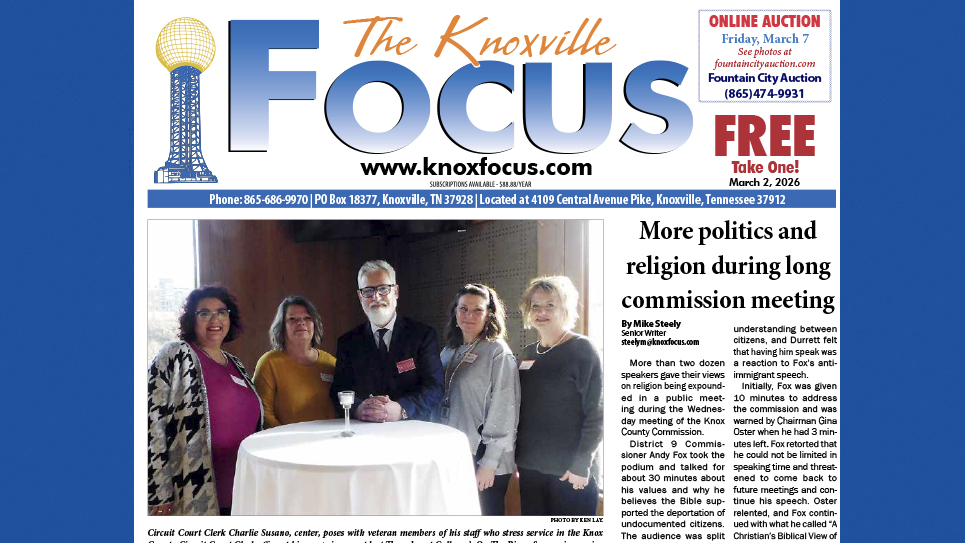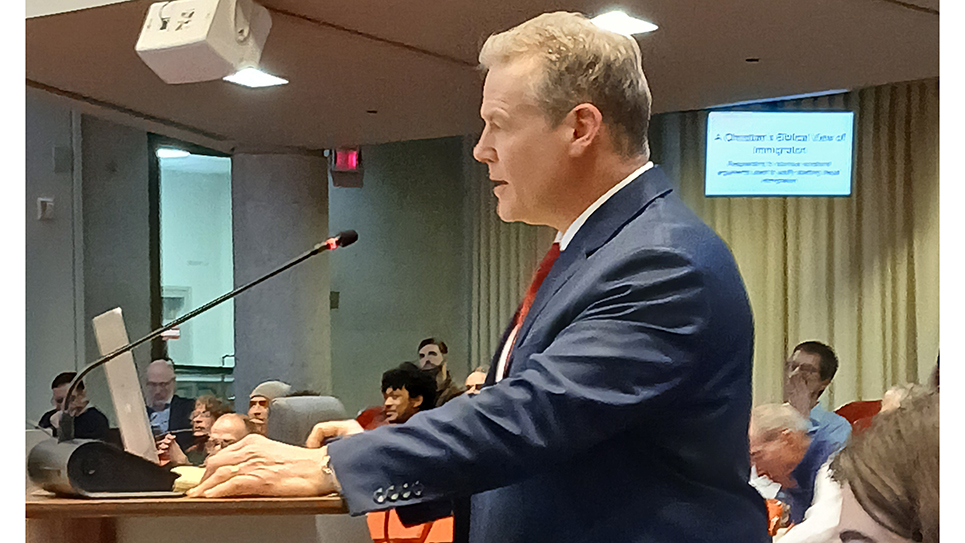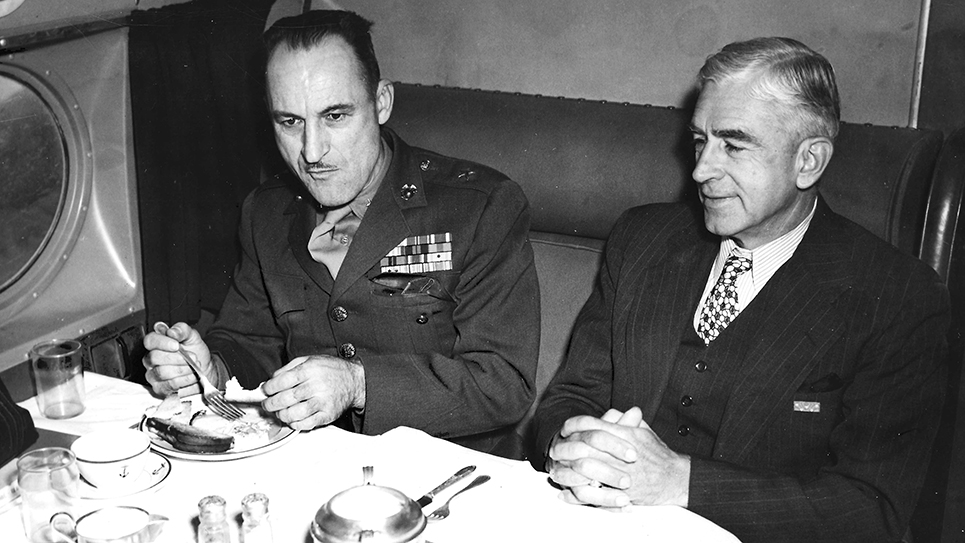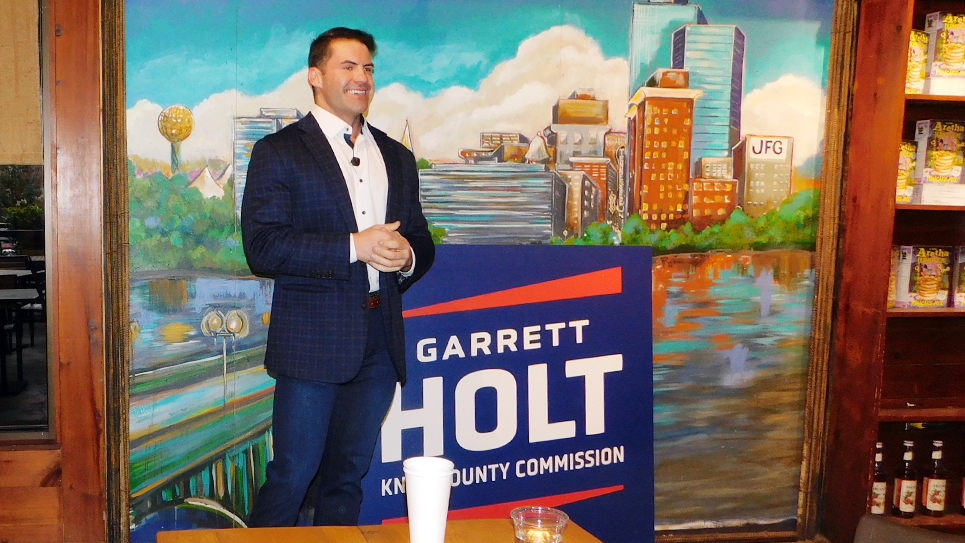Neocons Responsible For Russian-Ukraine War
By John J. Duncan Jr.
duncanj@knoxfocus.com
On August 16, my wife, Vickie, and I attended a conference at the Dulles Airport Hilton just outside Washington, D.C. It was titled “A Blueprint For Peace” and was hosted by the Ron Paul Institute for Peace and Prosperity.
This institute was started by Rep. Paul at the end of his last year in Congress in 2012. I participated in the founding press conference, and I am still on the advisory board.
This year’s conference had several outstanding speakers, such as Professor Jeffrey Sachs, Judge Andrew Napolitano, Col. Doug MacGregor, and others. The first day was a scholars program for college students headlined by Kelley Vlahos, former editor of the American Conservative Magazine.
Professor Sachs is from Columbia University and has been used by the United Nations to advise countries all over the world. He is considered to be one of the greatest foreign policy experts in this country.
In his speech, he said we need to dust off the Monroe Doctrine and stop intervening in so many wars and conflicts in the Middle East and elsewhere. He said the war in Ukraine and the slaughter in Gaza could be ended quickly if we made it clear we were no longer providing so much money and weaponry.
The Monroe Doctrine was a declaration made in 1823 by President James Monroe that basically said we would not allow political and military interference in our sphere of influence, the Americas, and in return, we would not try to run Europe.
This is not isolationism. We should have trade and tourism and cultural and educational exchanges with all nations, and we should help out during terrible humanitarian crises.
But almost all our wars over the last 60 or 75 years have been about money or power, or both. We have spent trillions and have lost many thousands of American lives to make a tiny few rich and powerful.
Most of this interventionism has been egged on by so-called Neocons, who are not conservative at all. In fact, columnist George Will wrote that Neocons were “magnificently misnamed,” and that they were “really the most radical people in this City” (meaning Washington, D.C.).
Russia and Ukraine began peace negotiations four days after their war started in February of 2022, and basically had a peace agreement worked out by April 15, 2022, until Boris Johnson, the prime minister of Great Britain, and Neocons in our own State Department, principally Victoria Nuland, urged Ukraine not to sign. Their demands have led to the spending of about $350 billion by the U.S., according to President Trump.
Even worse, it has led to hundreds of thousands, possibly as many as one million, deaths, counting all civilians and soldiers on both sides.
Victoria Nuland has led our policy toward Ukraine. She worked as chief of staff for Bill Clinton’s close friend, Strobe Talbott, in the State Department. Then she worked for Dick Cheney when he was vice president. From 2005 to 2008, George W. Bush appointed her as ambassador to NATO. Later, she was Under Secretary of State from 2021 to 2024, when she urged Ukraine not to sign the peace agreement with Russia. Now she teaches foreign policy with Hillary Clinton at Columbia.
Nuland is married to Robert Kagan. Kagan is and has been one of the leading Neocons for years. AI says he “is known for his strong advocacy of liberal internationalism” and “has been a vocal proponent of U.S. interventionism.” He was associated with the Project for the New American Century, the architects of our disastrous war in Iraq.
James Baker, then our secretary of state, gave Russia what he called an “ironclad promise” in 2012 not to move NATO further east – i.e., Ukraine – in return for Russia not contesting the reunification of Germany.
President Trump had six conversations with Putin during his (Trump’s) first term, during one or more of which Trump said he would not advocate NATO membership for Ukraine. This is why President Trump says this war would not have happened if he had been re-elected in 2020.
Samuel Charap, distinguished chair in Russia and Eurasia Policy and senior political scientist at the RAND Corporation, co-authored a Foreign Affairs Magazine article entitled “The Talks That Could Have Ended The War In Ukraine.”
He wrote, “Russia agreed to have a process to diplomatically address the dispute over Crimea,” a Russian speaking area that Russia annexed in 2014.
Charap added that the concession by Ukraine “of renouncing its ambitions to join NATO was potentially enough to engender some relatively significant concessions from Russia,” possibly even “some sort of compensation” to Ukraine for the Crimean Peninsula.
President George W. Bush promised repeatedly when he campaigned in 2000 that he was going to have a more “humble” foreign policy and put an end to “nation building” (of other nations). However, he allowed himself to be horribly misled and controlled by power-mad neocons.






